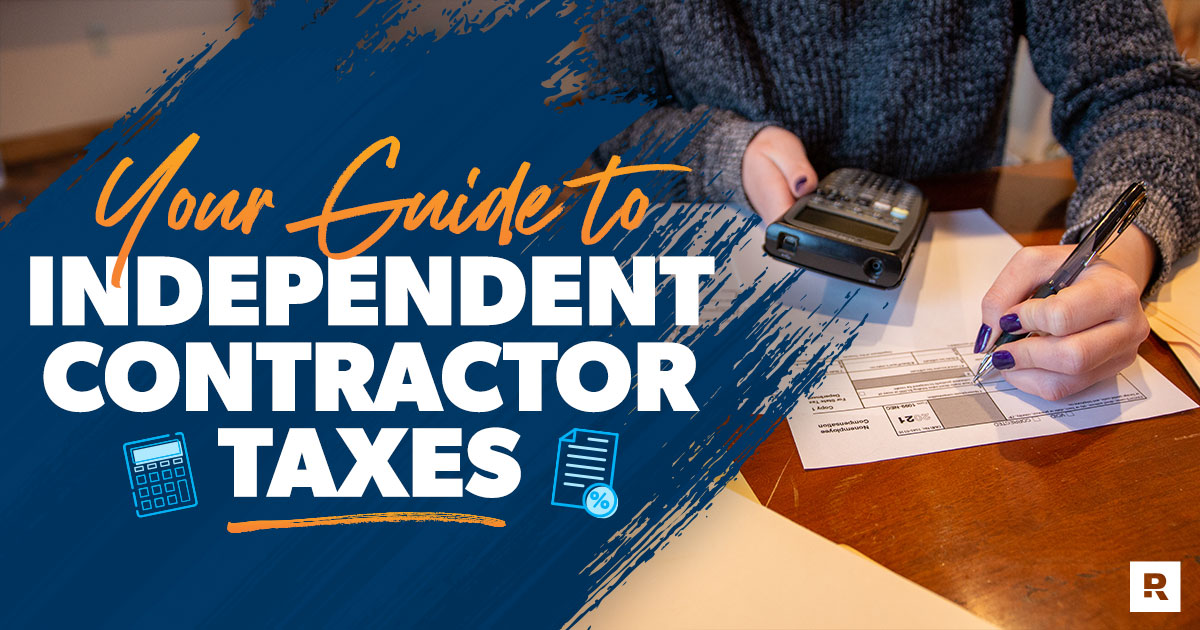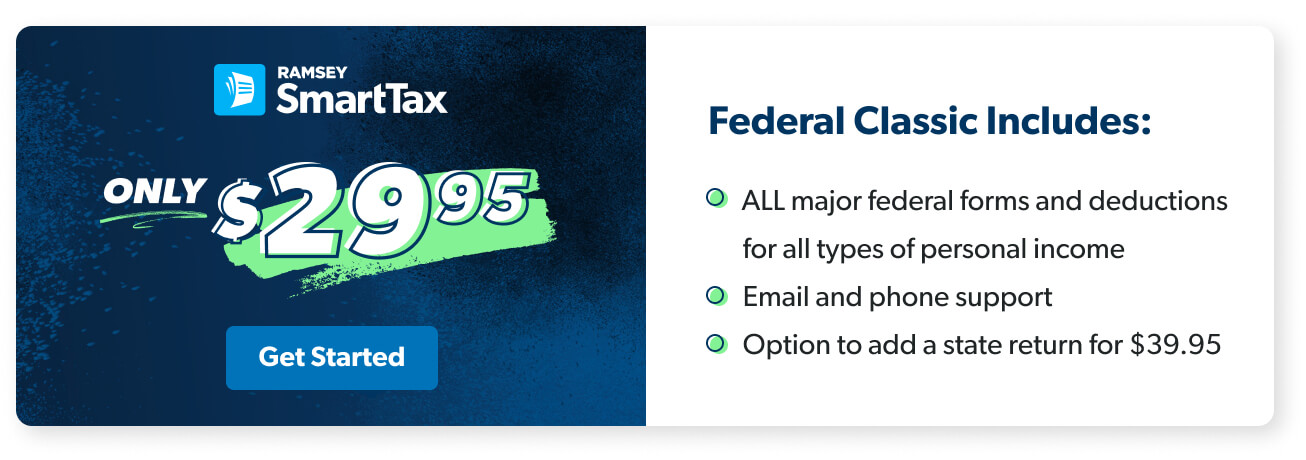A Guide to Independent Contractor Taxes
10 Min Read | Dec 20, 2023

What Is an Independent Contractor?
How Is Independent Contractor Income Paid and Reported?
How Does an Independent Contractor Pay Taxes?
Reporting Self-Employment Income
The Self-Employment Tax
Quarterly Estimated Tax Payments
1099-MISC vs. a 1099-NEC or 1099-K
What Are the Independent Contractor Tax Deadlines?
What Tax Deductions Can Independent Contractors Claim?
How Do Independent Contractor Taxes Work?
File Your Taxes With Confidence
Independent contractor, freelancer, gig worker, 1099 employee—there are lots of ways to say the same thing: You’re self-employed. That’s right, you’re your own boss . . . and a lot of times, your own tax guy (or gal).
Independent contractors work for one or more companies and don’t receive benefits or have payroll taxes withheld from their checks. So independent contractor taxes can be difficult, but we’re here to walk you through everything you need to know to win when it comes to tax time.
What Is an Independent Contractor?
The IRS splits workers into two categories: employees and nonemployees (independent contractors). Is it possible to work as an independent contractor while still holding down a full- or part-time job somewhere as an employee? Absolutely!
Employees receive company benefits, have payroll taxes withheld from their paychecks, and receive a W-2 at the end of the year that lists how much money they earned and how much was withheld for taxes. (They also have to laugh at their boss’s jokes.)
In most cases, though, independent contractors don’t have the option of having payroll taxes withheld from their checks. At the end of the year, the companies they work for send them a 1099 form instead of a W-2. (We’ll talk more about that in a minute.)
The IRS has a bunch of rules for determining if someone is an employee or an independent contractor, but the general rule is that you’re an independent contractor if a company assigns you work but doesn’t direct or control how you do it.1 Basically, if you’re a contractor, you don’t have to show up at an office at a certain time each week or work on a specific schedule. You probably miss out on water-cooler talk too . . . which isn’t necessarily a bad thing.
Some common professions for independent contractors include accountants, writers, electricians, ride-share drivers, landscapers, lawyers, hair stylists and doctors. While independent contractors come from many different walks of life, they all have something in common: a tricky tax situation.
How Is Independent Contractor Income Paid and Reported?
Independent contractors get paid in any number of ways: checks, cash, direct deposits or digital payments (like Venmo, PayPal, etc.). Some companies pay contractors by the hour and others pay them by the project. The IRS doesn’t classify this money as a salary or wages because only W-2 employees earn a salary or wages. It’s simply called nonemployee compensation (or self-employment income, in more plain terms).
Independent contractor income is usually reported on a 1099-NEC (the NEC part stands for nonemployee compensation) or a 1099-K. These little tax forms list how much money you earned as a contractor so you can report it on your taxes. Any companies you did more than $600 of work for should send you a 1099 at the end of the year.2 But even if you don’t get a 1099, you still need to report that income to the IRS. (Here’s a friendly reminder to keep good records throughout the year!)
If you’re a rock star independent contractor—say you’re a freelance writer and work for a bunch of different publications—you could end up with a pile of 1099-NECs. Make sure you gather them in a safe place because you’ll need them when it comes time to file your taxes. (Hint: The leaning tower of unopened mail on your desk isn’t a safe place.)
How Does an Independent Contractor Pay Taxes?
There are two certainties in life: death and taxes. Whether you’re an independent contractor or a normal employee, you have to pay taxes. The big difference is that independent contractors have to make direct tax payments to the IRS because they don’t have an employer who withholds taxes from their paycheck. Let’s talk about a few other differences you need to be aware of.
Reporting Self-Employment Income
One major difference between filing taxes as an employee and filing as an independent contractor is how you report your income. Independent contractors are required to file a Schedule C (aka a Profit or Loss From Business) tax form.
Got small business tax questions? RamseyTrusted tax pros are an extension of your business.
This two-page form does exactly what it says it does—it helps you report the profit you made or losses you took from your business this year (hopefully you made a nice profit!). It’s also where you’ll report your business expenses and claim any deductions to help ease the pain of filing.
The Self-Employment Tax
The self-employment tax is the big spoiler when it comes to being an independent contractor. This 15.3% tax is made up of both the employee and employer portions of Social Security and Medicare taxes (sometimes called FICA, which stands for Federal Insurance Contributions Act).3
Everyone who works has to pay FICA taxes on their wages. But the difference between being self-employed and being employed by a company is that employers are required to foot the bill for half (7.65%) of FICA. So if you’re self-employed, you’re stuck paying the full 15.3%. Ouch!
You’ll need to fill out Schedule SE to figure out how much you owe in self-employment taxes, but don’t panic just yet—you can claim half of what you pay in self-employment tax as an income tax deduction. We’ll also go over some other deductions that’ll lower your tax bill.
Quarterly Estimated Tax Payments
Not having taxes withheld from your paycheck on a regular basis means you could rack up a pretty big tax bill by the end of the year. Because of this, the IRS requires contractors who expect to owe more than $1,000 in taxes at the end of the year to pay quarterly taxes. This means you have to estimate your income and tax liability and send a tax payment to the IRS every few months.
If you don’t make estimated payments and end up with a tax bill over $1,000 at the end of the year, the IRS will hit you with fees and penalties for underpaying your taxes. You never want to end up on the IRS’ bad side, so make sure you’re paying enough taxes. A good rule of thumb is to set aside 25–30% of every paycheck for taxes if you’re self-employed.
Not sure where to get started on making quarterly payments? Let a tax pro help you figure out how much you should be setting aside so you don’t rack up any fees or penalties from Uncle Sam.
1099-MISC vs. a 1099-NEC or 1099-K
As we’ve already discussed, your income as an independent contractor is usually reported on a 1099-K or 1099-NEC form. So how are those forms different from a 1099-MISC? Well, MISC stands for miscellaneous income. In other words, any income you’re generating from your side hustle or independent contractor work that’s different from payment for your services. Think royalties, rent, jury duty pay (yuck!), medical and health care payments, or lawyer fees.
What Are the Independent Contractor Tax Deadlines?
The due dates for those quarterly estimated tax payments you may need to make (as long as they don’t fall on weekends or holidays) are April 15, June 15, September 15 and January 15.4
And even if you make quarterly payments, you’ll still need to file your annual tax return like everyone else on April 15. If you live in a state or city that has income taxes, check with your local government for specific guidelines for estimated payments.
What Tax Deductions Can Independent Contractors Claim?
The key to lowering your tax bill is through tax deductions, and there are a bunch of them for independent contractors. One of the largest deductions you can take is the home office deduction, which lets you deduct a portion of your home’s expenses (mortgage, insurance, utilities, etc.). Other common deductions are vehicle use (65.5 cents per mile, baby!), office supplies, equipment, phone and internet service, and travel and meals.5
Here are some of the most common self-employment tax deductions you can claim as an independent contractor:
- Home office
- Vehicle use
- Office supplies
- Phone and internet
- Self-employment tax
- Equipment
- Travel and meals
- Educational expenses
- Business insurance
- Retirement plan contributions
- Advertising
- Rent
- Legal and professional fees
- Start-up costs
- Health insurance premiums
- Memberships and publications
To claim any of these deductions, you’ll need to fill out a Schedule C tax form. This two-page form is for reporting profit or loss from business. Hopefully you made a profit!
How Do Independent Contractor Taxes Work?
We’ve covered a lot of ground, so let’s take a look at an example to try to clarify it all.
Bill Shakespeare is a freelance writer who wrote four plays for four different theater companies in 2023. At the end of the year, each of the theater companies sent Bill a 1099-NEC form that listed how much they paid him for his work. The total is $80,000. (Hey, who says artists have to starve?)
Bill will include all the income he earned on Part I of Schedule C. So that’s pretty simple: $80,000.
In Part II, he’ll subtract or deduct all of his business expenses from his income. Let’s say his home office takes up 20% of the space in his home. That means he can deduct 20% of his mortgage, insurance and utilities. We’ll keep it simple and say that equals $4,000.
And then he bought a $2,000 laptop (used exclusively for business) and spent $5,000 traveling (by car and plane) to the theater companies. That comes to a grand total of $11,000 in expenses.
You calculate your profit (or loss) by subtracting your expenses from your income. So in Bill’s case, he made $69,000 in net profit ($80,000 - $11,000 = $69,000).
Bill’s next step is to take his net profit and plug it into Schedule SE to figure out how much he owes in self-employment taxes. Remember, the self-employment tax is 15.3%, so that means Bill will owe $10,557. The IRS gives you a little break on your self-employment taxes—they let you deduct the portion your employer would’ve paid. So that’ll knock down Bill’s tax bill a bit.
After that, Bill will move on to the 1040 tax form and begin the process of figuring out the rest of his income taxes.
Since Bill owes more than $1,000 in self-employment taxes—and that’s not counting income taxes he’ll owe once he’s done filling out his 1040—he needs to make quarterly estimated tax payments to avoid IRS penalties.
File Your Taxes With Confidence
Did you get lost in the weeds? A RamseyTrusted tax pro can guide you through your tax situation no matter how complicated it seems. They know tax code inside and out so you don’t have to. Find a tax pro now!
Being an independent contractor makes doing your own taxes more difficult, but it’s not impossible. If you’re a do-it-yourself kind of person, then Ramsey SmartTax is the tax software for you. It’s easy to use and you’ll never have to worry about hidden fees. Check out Ramsey SmartTax today.



